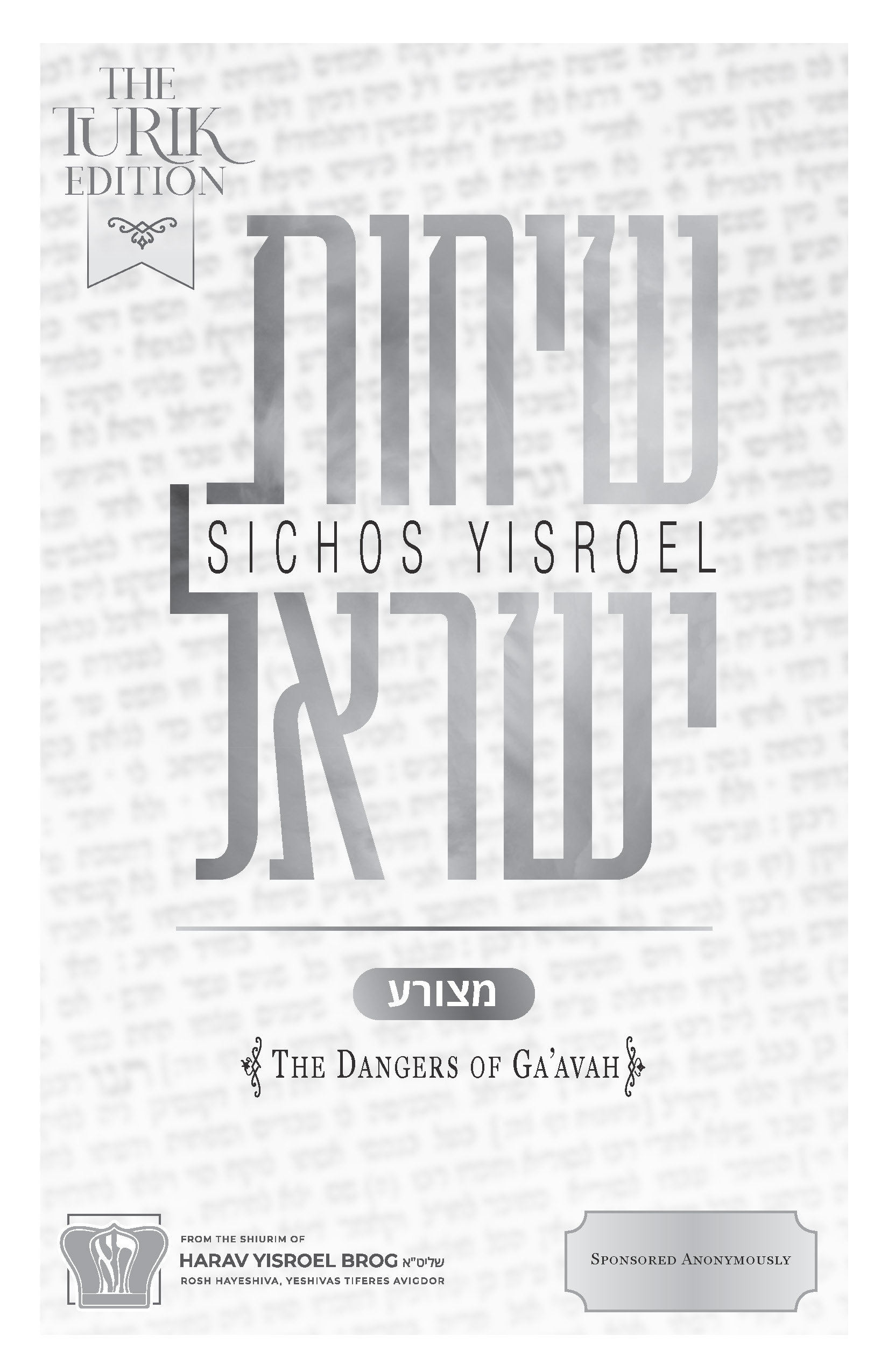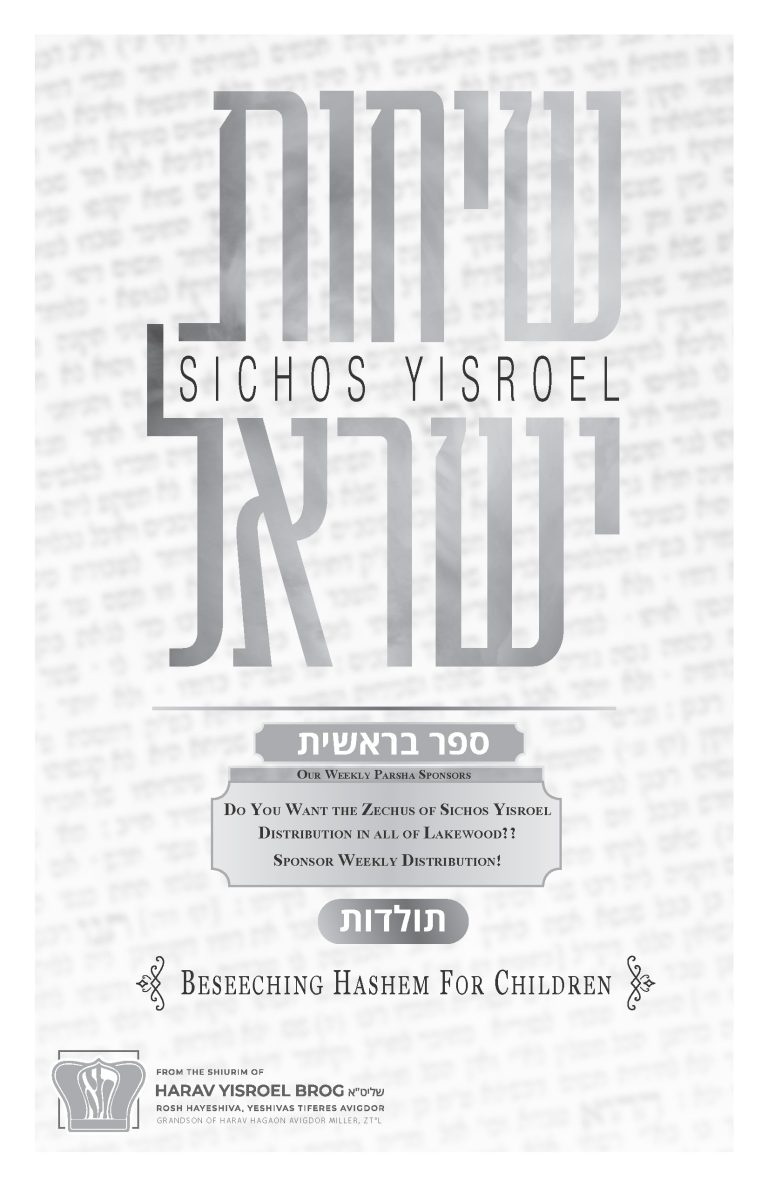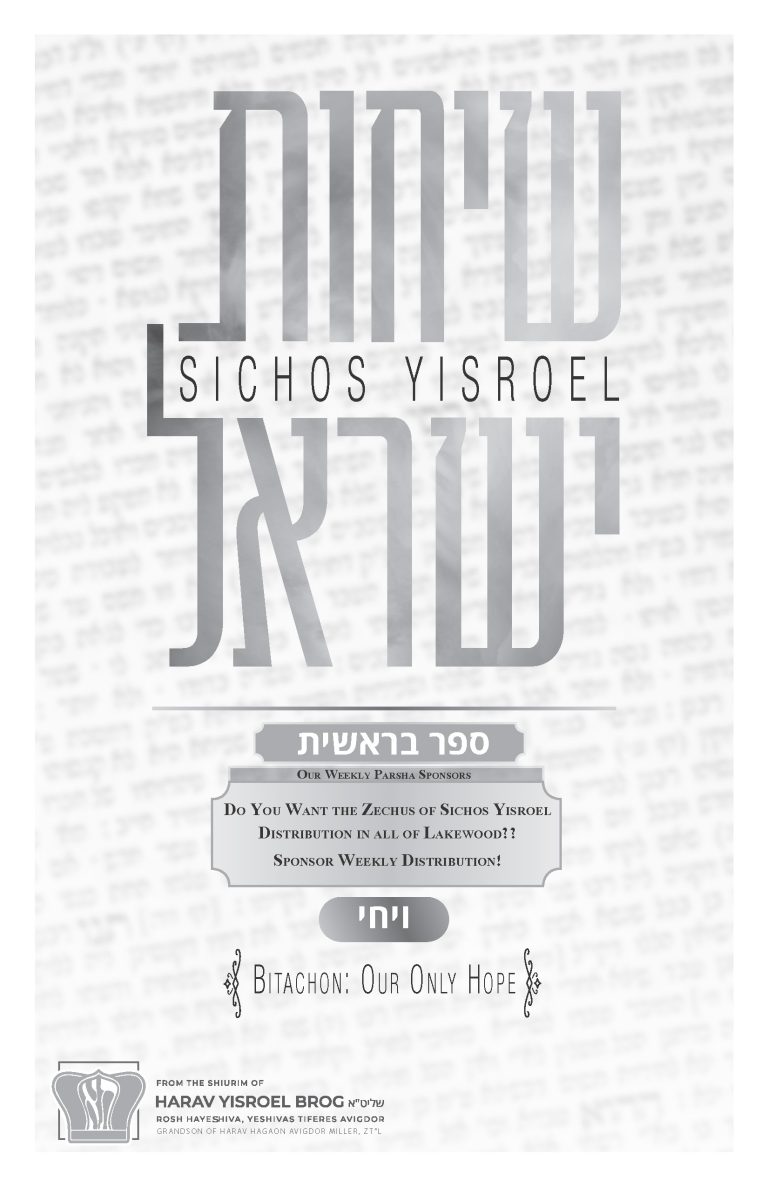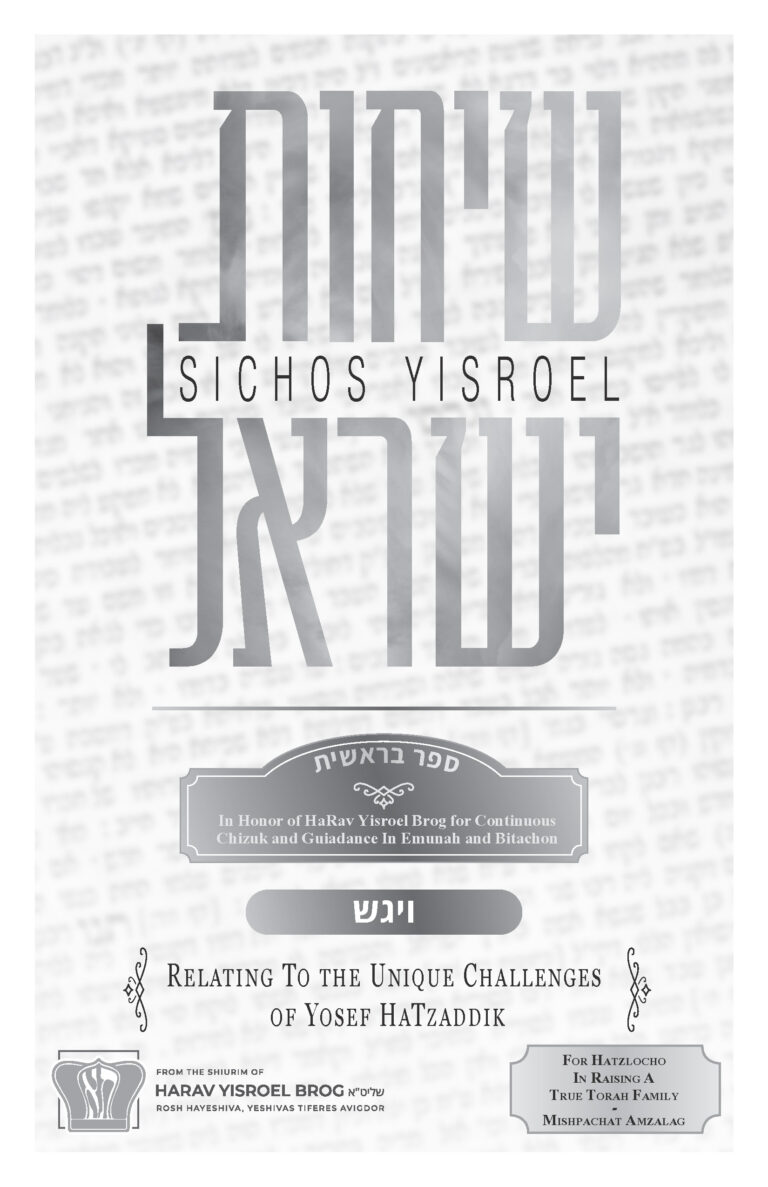
Similar Posts

Pesach 5782 – Getting out of our Galus
Sponsored Anonymously Visit YTATorah.org Shiur presented in 5778
Chaukah 5781: The Grown-Up Message of Chanukah: Complete Bitachon in Hashem
Shiur presented in 5779 A Superficial Outlook on Yomim Tovim This year, B’ezras Hashem, we will get another chance at celebrating the Yom Tov of Chanukah. Most people have a childlike view of Chanukah, just like everything else in their lives because when they were children, their parents introduced them to Chanukah through their childish…

Toldos 5785: Beseeching Hashem For Children
The parshah begins with a story out of the life of Yitzchok and Rivkah. It tells us that they – who had gotten married in such a wonderful and miraculous way through the hands of Hashem – had a difficulty with having children. At the time, Yitzchak was 40 years old, and his bride, Rivka, was a young girl. Yitzchak understood he wasn’t going to have children right away, but then “right away” became a longer period of time. The Torah tells us “Yitzchak pleaded with Hashem” because his wife was barren.

Vayechi 5785: Bitachon: Our Only Hope
There are a lot of hints that Yaakov Avinu foresaw the future of Klal Yisrael, and he mentioned them in the birchas Yaakov. Chazal tell us that Yaakov Avinu foresaw how Shimshon Hagibor will defeat the enemies of Klal Yisrael in an unbelievable way and Yakov thought that Shimshon was going to be the Moshiach, but since he saw that Shimshon was going to die, Yaakov Avinu realized he’s not going to be the Moshiach. So, what did Yaakov Avinu say next?

Emor 5783: Learning to Honor Your Fellow Jew
The gemara Yevamos (62b) tells us about the 12,000 pairs of talmidim that Rabbi Akiva had. They didn’t learn in one building. They were spread out from a place called Gabos until Antifras – a network of yeshivos under Rabbi Akiva’s leadership. To imagine such a yeshivah is unbelievable.

Vayigash 5783: Relating To the Unique Challenges of Yosef HaTzaddik
In this week’s parshah, there are a lot of powerful lessons to be learned. Yosef comes face to face with his brothers, and he reveals himself to them. Now, the passuk (Bereishis 45:4) says, אני יוסף אחיכם, I am Yosef your brother, אשר מכרתם אותי מצרימה, whom you sold to Mitzrayim. My Rebbi (HaRav Meir Halevi Soloveichik, zt”l) asked the following question: what was Yosef coming to add when he said אני יוסף אחיכם?